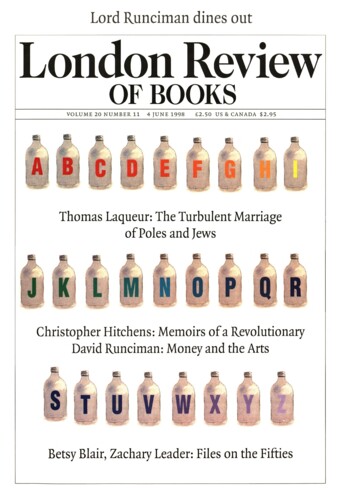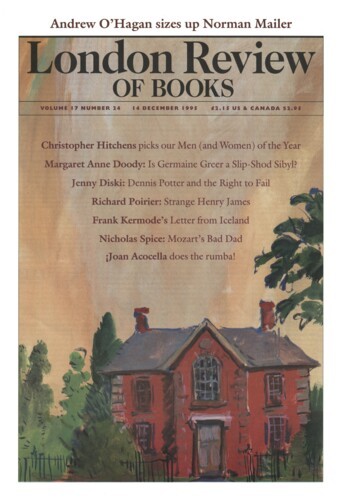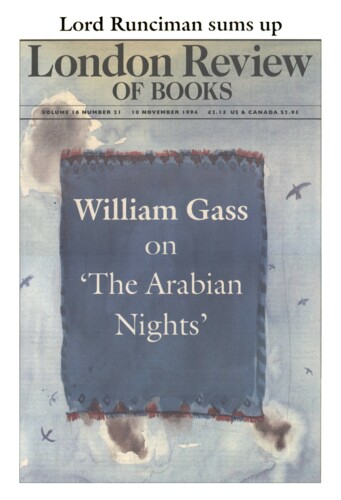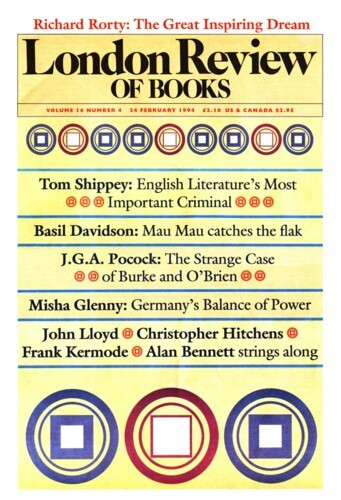Diary: Dining Out
W.G. Runciman, 4 June 1998
10 June 1993. Fellow-guests with Tony and Cherie Blair at a BBC dinner. Blair says immediately to my wife: ‘Weren’t you kind enough to ask me to a drinks party for Frank Field’s 50th birthday?’ She answers: ‘Yes, and you neither came nor replied.’ ‘Didn’t I?’ says Blair, and subsequently sends a charming letter of apology. The thought that this smiling young Scottish public schoolboy could be the next prime minister doesn’t cross either of our minds. On the other hand, John Birt is suitably impressed when I tell him that I actually met the great Lord Reith on the day of his extraordinary speech in the House of Lords likening commercial broadcasting to the Black Death. It was as if I’d said to the present Chief of the Defence Staff that I’d met the first Duke of Wellington.‘




